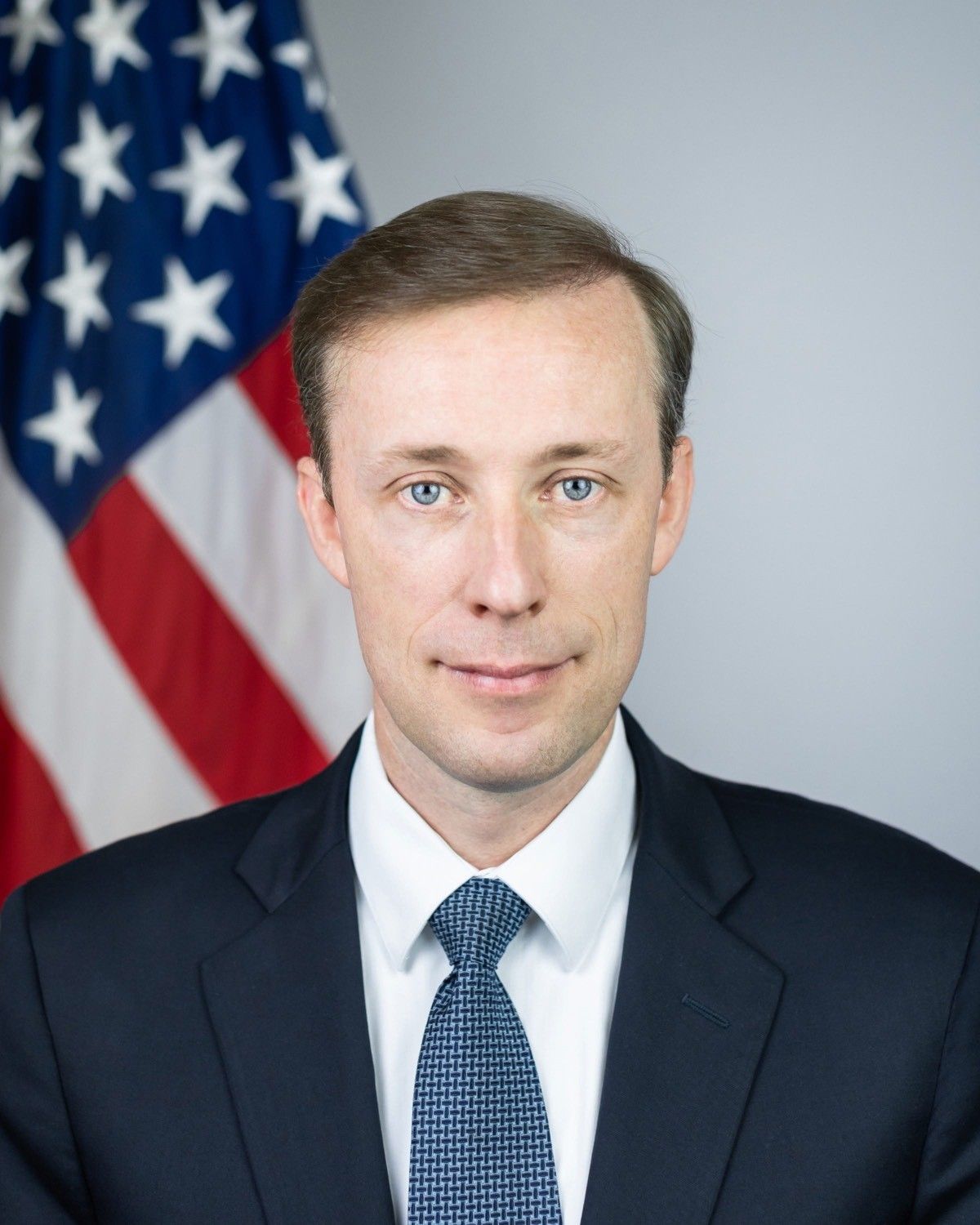- +8
Salman Ahmed, Wendy Cutler, Rozlyn C. Engel, …
{
"authors": [
"Jake Sullivan"
],
"type": "legacyinthemedia",
"centerAffiliationAll": "",
"centers": [
"Carnegie Endowment for International Peace"
],
"collections": [],
"englishNewsletterAll": "",
"nonEnglishNewsletterAll": "",
"primaryCenter": "Carnegie Endowment for International Peace",
"programAffiliation": "",
"programs": [],
"projects": [],
"regions": [
"North America",
"United States"
],
"topics": [
"Political Reform"
]
}
Source: Getty
I Was Hillary Clinton’s Chief Foreign-Policy Advisor. And I Have a #MeToo Mea Culpa.
Every single person who works in national security and foreign policy has to confront the problem of sexual harassment squarely and thoroughly—and not stop staring it in the face until things change.
Source: Foreign Policy
Over the past few weeks, hundreds of my female colleagues in the national security community have stepped forward to describe a persistent and horrifying pattern of sexual harassment, assault, and abuse within our profession. It has been jarring, even disorienting, to learn that women I respect as professionals and care deeply about as friends have been carrying around these painful experiences. It took guts to come forward. Now, it’s up to the rest of us to have their backs.
In this frenzied media environment, there’s a very real chance that their stories, along with so many others, will fade a little more with every news cycle, and we’ll all look around a few years from now and realize that nothing changed. We can’t let that happen. Every single person who works in national security and foreign policy has to confront this problem squarely and thoroughly — and not stop staring it in the face until things change. We should do this for our colleagues and friends, but also for our profession and our country. How can we do the kind of work that will lead to a stronger, safer America when so many of our colleagues are regularly mistreated and made to feel unsafe?
And while we all have to do better, that’s especially true for we men who see ourselves as allies to women and champions of gender equality in our profession. The fact is we’ve missed the depth and breadth of this awful force in our midst. At least, I’ve missed it.
It was no secret to me or anyone else that U.S. national security and foreign policy are male-dominated. Still, from my perches at the State Department, the White House, and the Hillary for America campaign, I thought things looked, well, OK. I worked with and for many capable, creative women who did outstanding work. Women held a number of powerful positions in the Obama administration. And I thought — I hoped — I was doing my part to make our profession more equitable by being a good boss, mentor, and colleague to women. But I know now that I failed to grasp a lot of the things that were happening to undermine those women — or worse, to intimidate or harm them. I expect many of my male colleagues would say the same thing.
We’ve now heard stories from colleagues who had to endure leering and off-color jokes and outright passes from men they reported to; who had to physically push male colleagues off them on work trips overseas; or who left jobs that they otherwise loved because they just couldn’t handle being talked over and condescended to and treated like a naive newbie day after day, after working so hard for so many years. I didn’t know the depth of the problem, and I don’t think it’s because I was willfully blind or uniquely unaware. Part of it was that women haven’t felt able to report many of these experiences — they have come to believe that public silence was their only viable option. And that is perhaps the most insidious thing of all.
But I can’t let myself off the hook, either. I wasn’t oblivious to the mansplaining that is rampant in Washington (and perhaps everywhere), or to the fact that many meetings were comprised of almost exclusively men around the table and on the secure video screens. And if I’m being fully honest, at the time it bothered me, but not enough. When the meetings were about pressing national security issues, we didn’t need to focus on the gender representation in the room, right? Didn’t we have bigger things to worry about?
That was wrongheaded.Whether our workplaces are hostile to women is about as big an issue as it gets. And how can we as a community effectively represent the United States and champion our values around the world when we’re not even fully living them in the rooms where we’re setting that agenda?
I used to think the core problem of sexism in our field was one of opportunity — just getting in the door. The number of women in national security has been growing steadily for a while now, so things were getting better, weren’t they? I have come to see, belatedly, that it’s so much more than that. Even when they get past the gate, women have to contend with a set of trapdoors and landmines — an obstacle course that often leads to hurt and pain, or worse, and always requires contortions to pass through. It’s something that most men never have to face.
We have to resist the temptation to blame this on a few bad apples; there are structural and cultural issues that allow awful behavior to be both widespread and hidden.
To some readers, especially women who have experienced this forever, this all may sound blindingly obvious. And indeed, when I write it down, it does to me, too. But the fact is, I’m a straight white guy who went to Yale, and I’ve been blessed with fantastic mentors and open doors my whole career. The fact is, it is harder to recognize the way that barriers like bias work when you haven’t been subject to them.
As my former colleagues Julie Smith and Nina Hachigian have pointed out, unconscious bias and the basic inclination to hire and support people who look like you and have pedigrees and experiences like you, are persistently at work in employment decisions — among both men and women. While I have consciously sought to hire and promote women, I’ve also hired my share of white guys from Yale. They were all terrific, qualified people – but they never had to pay the “tax on women in national security,” to borrow a phrase from Dan Drezner. And while it’s a bigger subject than I can tackle here, I would be remiss if I didn’t underscore that the national security community needs to have a similar reckoning when it comes to racial and ethnic diversity. My former colleague Reuben Brigety has written powerfully on this point.
Okay, so now what? What can we do?
It’s a question I’ve asked many female colleagues in recent days. And after explaining that having to walk well-intentioned men through this topic is a burden unto itself, many of them had the same basic response: I was asking the wrong question.
The right question is not what can we do, but what can I do. If I’m waiting for others to step up, I’m wasting time and ducking responsibility. The only way we’re all going to move from words of concern and regret to better outcomes is if every one of us sees combating sexism and harassment in national security as our job.
I believe the most important thing I can do as a man right now is to listen — to keep learning about the reality that women face and more fully understand the impact of their experiences. Beyond that, here’s a more concrete list:
Be more aware and ask others to be more aware. Make clear to male colleagues that this kind of behavior won’t just bring professional consequences — they will be ejected from our community. Make clear to women who work with me that I will be an ally and a champion if they ever face this kind of conduct. Call out the absence of women in meetings or on panels, and then do something about it. Hire women, mentor women, and rigorously check myself to make sure I’m not inadvertently giving women less support and respect than men.
Here’s what we should not do. Men can’t conclude that it’s just too much trouble to hire women, or work closely with women — or adopt the Pence rule and steer clear of one-on-one interactions with female colleagues, while having dinners and social outings with men. That would take us backward, not forward, and harm the very people we are trying to empower. It would install a whole new set of sexist barriers. More than that, it would rob all of us of effective collaboration and teamwork.
My former boss, Hillary Clinton, reminds us all the time that full and equal participation by women is not just the right thing to do; it’s the smart thing to do. We went all over the world urging societies to do better by their women and girls (an issue I didn’t see as a priority when I arrived at the State Department, but ultimately became one more living example of how there is no zealot like a convert). Armed with studies, we made the case about how gender equality leads to stronger, more dynamic, and more effective institutions. It’s time that we turn that same focus on our workplaces and ourselves.
Perhaps most fundamentally, women should not have to rely only on each other — or on public reporting — to respond to sexual assault, abuse, and harassment. They should be able to count on a workplace culture and a system that addresses this scourge they right way, where their wrongdoers pay the price and not the other way around. This is no small task, but we’ve all got to be a part of making it happen.
About the Author

Former U.S. National Security Advisor to Former President Joe Biden
Jake Sullivan, a senior fellow at the University of New Hampshire's Carsey School of Public Policy, served as the United States national security advisor to former President Joe Biden from 2021 to 2025. Sullivan previously served as deputy assistant to former President Barack Obama, national security advisor to former Vice President Biden, director of policy planning in the State Department, and as deputy chief of staff to former U.S. Secretary of State Hillary Clinton.
- Making U.S. Foreign Policy Work Better for the Middle ClassReport
- U.S. Foreign Policy for the Middle Class: Perspectives From NebraskaReport
- +14
Salman Ahmed, Allison Gelman, Tarik Abdel-Monem, …
Recent Work
Carnegie does not take institutional positions on public policy issues; the views represented herein are those of the author(s) and do not necessarily reflect the views of Carnegie, its staff, or its trustees.
More Work from Carnegie Endowment for International Peace
- The Gulf Monarchies Are Caught Between Iran’s Desperation and the U.S.’s RecklessnessCommentary
Only collective security can protect fragile economic models.
Andrew Leber
- Europe on Iran: Gone with the WindCommentary
Europe’s reaction to the war in Iran has been disunited and meek, a far cry from its previously leading role in diplomacy with Tehran. To avoid being condemned to the sidelines while escalation continues, Brussels needs to stand up for international law.
Pierre Vimont
- Lessons Learned from the Biden Administration’s Initial Efforts on Climate MigrationArticle
In 2021, the U.S. government began to consider how to address climate migration. The outcomes of that process offer useful takeaways for other governments.
Jennifer DeCesaro
- India Signs the Pax Silica—A Counter to Pax Sinica?Commentary
On the last day of the India AI Impact Summit, India signed Pax Silica, a U.S.-led declaration seemingly focused on semiconductors. While India’s accession to the same was not entirely unforeseen, becoming a signatory nation this quickly was not on the cards either.
Konark Bhandari
- What We Know About Drone Use in the Iran WarCommentary
Two experts discuss how drone technology is shaping yet another conflict and what the United States can learn from Ukraine.
Steve Feldstein, Dara Massicot











